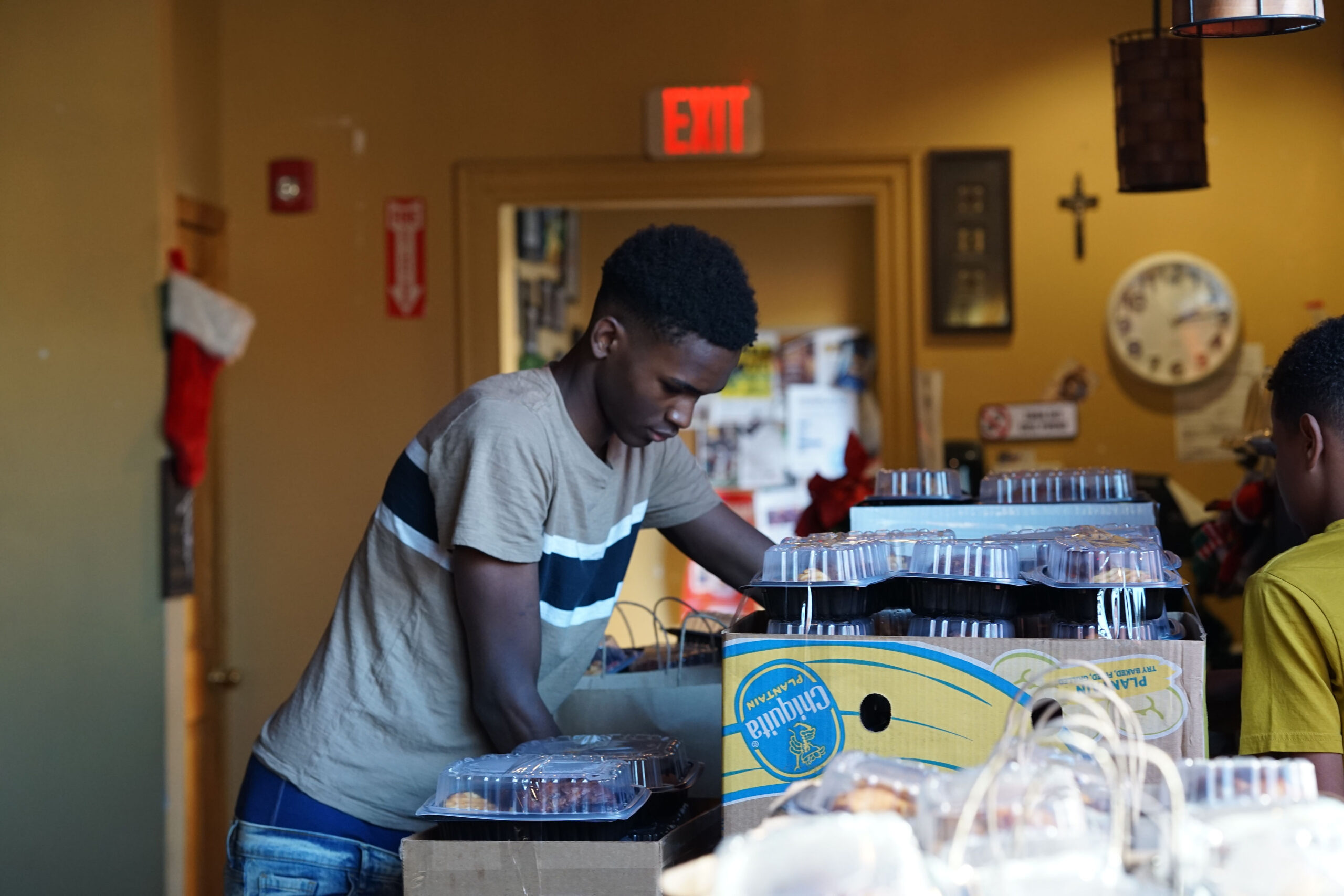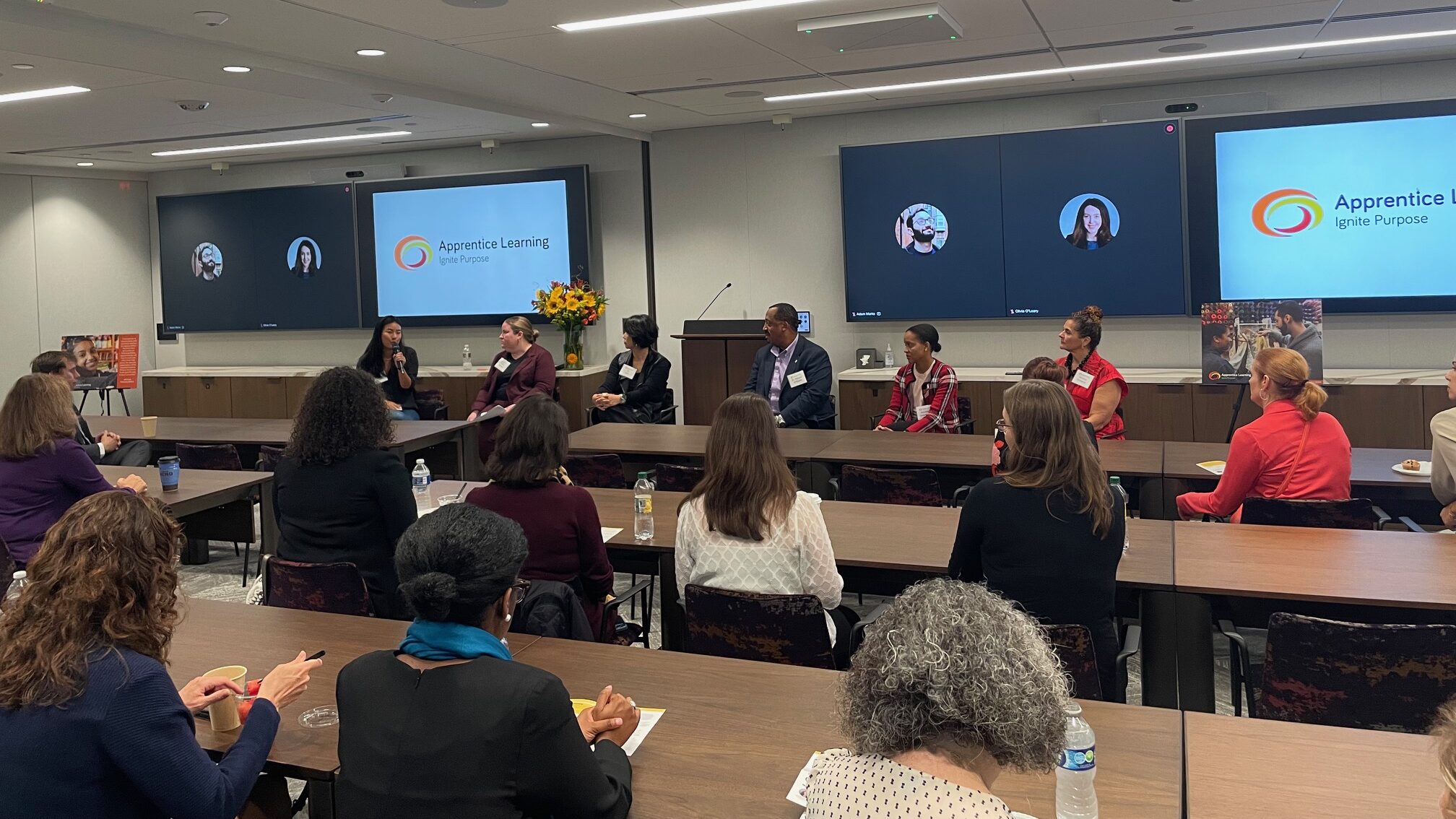
Apprentice Learning’s programs consistently deepen the link between school and career possibilities using hands-on learning in the workplace. An integral part of the school day, Apprenticeships drive home the connection between career and academic success for eighth grade students. This year, a $200 stipend augments the importance of successfully practicing skills and earning power.
In our five partner schools, each of our 192 apprentices in our six preparatory sessions and six workplace sessions work towards earning a full stipend for attendance, punctuality and the practice of essential skills such as communication, self-presentation and completion of their first resume. Angel notes, “The money was on my mind.” The stipend amplifies the experience to feel like a real world experience.
Tasmin 2023 Apprentice, echoes this feeling, “I practiced being work ready by doing my work and always going to school on Thursdays. I was invested in the training and development programs that focus on building workplace readiness skills. I liked the workshops that cover essential topics like communication, teamwork, and problem-solving.”
What impact have stipends had on Apprenticeships?
- After a dip in the Covid years, Fall 2023 attendance has improved to 87% prep sessions and to 88% in workplace-based learning compared to Spring 2023 attendance of 79% and 84% respectively. This contributes to our schools’ attendance improvement strategies.
- Families are excited to learn that their child is eligible for a paid stipend. Often this is an eighth grade student’s first paid experience and an opportunity to introduce savings and budgeting.
- Earning one’s first “check” is a memorable moment and fills youth with pride and a sense of competence and self-efficacy.
Funding partners from the Office for Workforce Development, the Office for Youth Engagement and Advancement, Jinny Chalmers Fund, and Someone Else’s Child Foundation have supported this effort, launching the City’s youngest workers into a rich array of summer and school year employment opportunities that will build their career interests throughout high school and beyond.
We are extraordinarily grateful for this deep investment in launching youth into the workforce. In 2023, the City made an unprecedented $18.7M investment in youth jobs, the largest in Boston’s history. Their website notes that funding supported 5,000 youth jobs with local nonprofits and 2,000 City based jobs, making the City of Boston the largest local employer for youth jobs.


